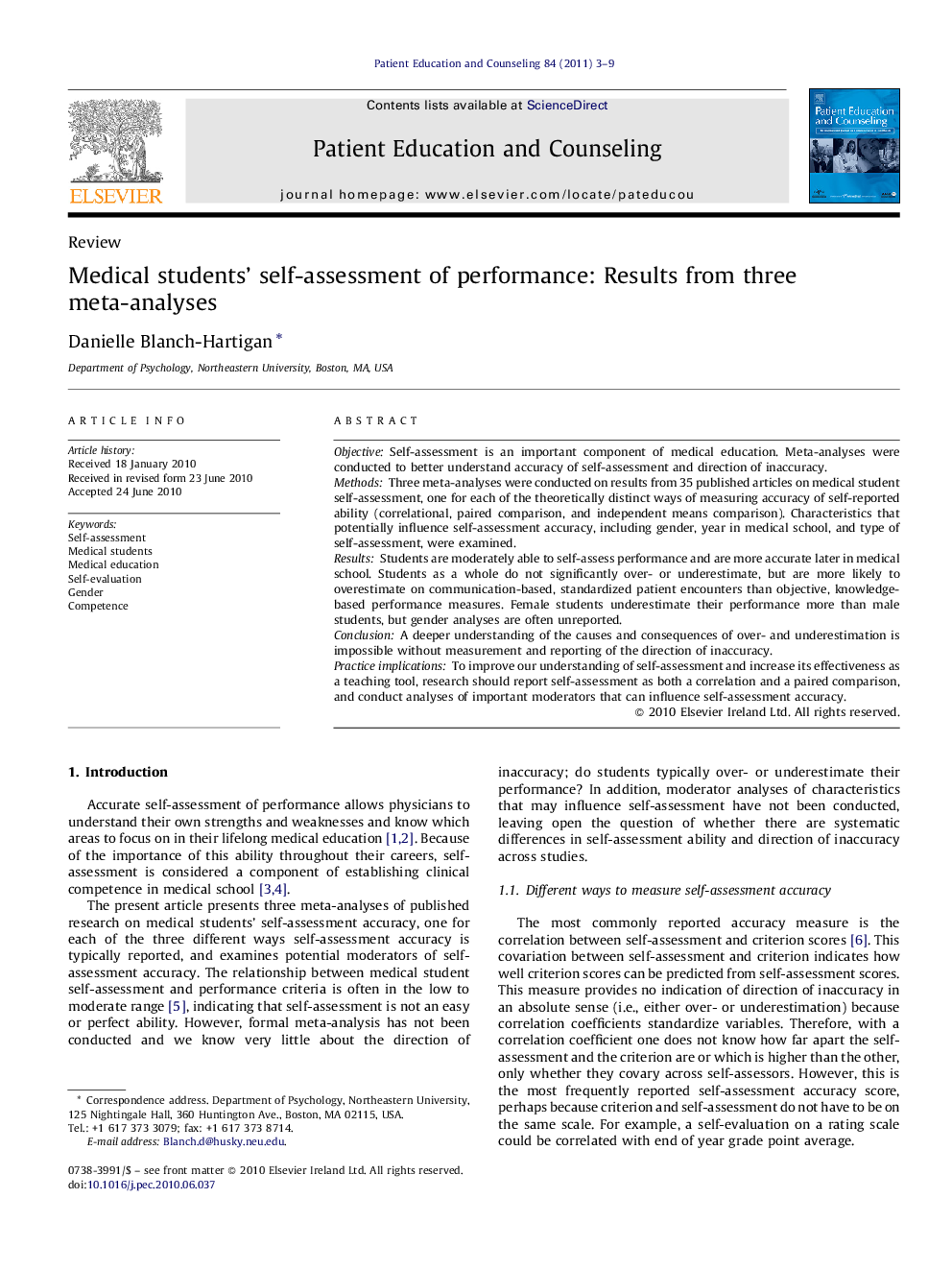| Article ID | Journal | Published Year | Pages | File Type |
|---|---|---|---|---|
| 6154255 | Patient Education and Counseling | 2011 | 7 Pages |
ObjectiveSelf-assessment is an important component of medical education. Meta-analyses were conducted to better understand accuracy of self-assessment and direction of inaccuracy.MethodsThree meta-analyses were conducted on results from 35 published articles on medical student self-assessment, one for each of the theoretically distinct ways of measuring accuracy of self-reported ability (correlational, paired comparison, and independent means comparison). Characteristics that potentially influence self-assessment accuracy, including gender, year in medical school, and type of self-assessment, were examined.ResultsStudents are moderately able to self-assess performance and are more accurate later in medical school. Students as a whole do not significantly over- or underestimate, but are more likely to overestimate on communication-based, standardized patient encounters than objective, knowledge-based performance measures. Female students underestimate their performance more than male students, but gender analyses are often unreported.ConclusionA deeper understanding of the causes and consequences of over- and underestimation is impossible without measurement and reporting of the direction of inaccuracy.Practice implicationsTo improve our understanding of self-assessment and increase its effectiveness as a teaching tool, research should report self-assessment as both a correlation and a paired comparison, and conduct analyses of important moderators that can influence self-assessment accuracy.
